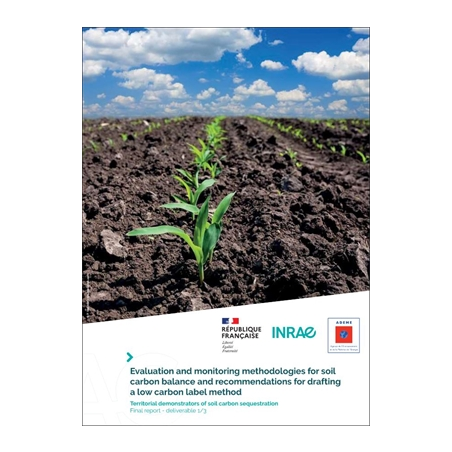With the aim of participating in the establishment of effective and incentive measures to sequester C in soils, this ADEME-funded project first aims to propose a protocol for setting up a low-cost MRV (Monitoring Reporting Verification) method fo assessing C sequestration that is robust, simple to implement and replicable in differents contexts and over large areas, and to define its limits. In Delliverable 1, three possible options for assessing and monitoring the C balance are identified, with different methodologies, tools and data that can be used, as well as recommendations for the specific case of croplands in France. We highlight the impact of uncertainties in the input data of MRV methods on C stock estimates and the interest of moving towards methods that include remote sensing in a territorial deployment process.
